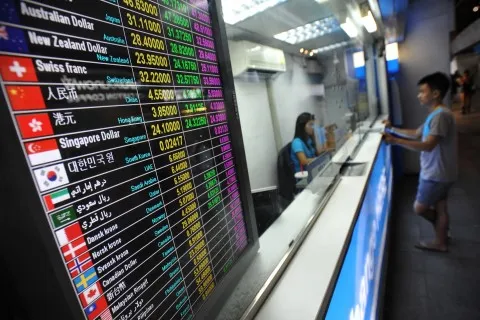
Taiwanese banks' profitability predicted to surge over the medium term
Thanks partly to macroeconomic environment improvement.
Taiwanese bank profitability should rise over the medium term due to widening margins and a cyclical improvement in the macroeconomic environment.
According to a release from Fitch Ratings, an improving macroeconomic environment will contribute to improving profitability, in line with expectations that real GDP growth will accelerate in 2014 after hitting a cyclical trough of 1.5% in 2012, though remaining below its pre-2008 crisis average of about 4%.
Asset quality has improved alongside stronger corporate earnings performance, with Fitch estimating the aggregate banking sector impaired loans ratio falling to 1.7% in 1H14 from 2.3% in 1H13.
Here’s more from Fitch Ratings:
Recovery in the technology sector, and improving global demand for semiconductors and power supply parts, helped to keep unemployment low while improving the recovery of stressed assets.
Growth in non-interest income, including from wealth management fees and sales of retail derivative products, was also particularly strong for Taiwanese banks in 1H14.
The key to any ultimate ratings upgrades would be the sustainability of improved profitability. The sharp rise in wealth management fees and derivatives sales could be less sustainable than interest income.
It further carries potential regulatory and reputational risks associated with the potential mis-selling of investment products.
From a macroeconomic perspective as well, Taiwan's very open economy has traditionally resulted in volatile GDP growth rates and susceptibility to exogenous demand shocks.
China's economic rebalancing and the resulting effects on Taiwan are also uncertain, thus raising questions about long-term growth.
The increase in offshore lending will also raise the risk of potential China concentrations. Fitch has previously highlighted that Chinese assets could become a downside rating factor for Taiwanese banks should exposures grow excessively without generating sustainably strong profit growth, and in the event that they maintain inadequate capital to withstand potential shocks linked to mainland macroeconomic risks.




![Lorem Ipsum [ABF 1]](https://cmg-qa.s3.ap-southeast-1.amazonaws.com/s3fs-public/styles/exclusive_featured_article/public/2025-03/a_hand_pointing_to_a_futuristic_technology_5b87c9d0e3_1.png.webp?itok=2w0y1WhS)


![Cross Domain [Manu + SBR + ABF + ABR + FMCG + HBR + ]](https://cmg-qa.s3.ap-southeast-1.amazonaws.com/s3fs-public/styles/exclusive_featured_article/public/2025-01/earth-3537401_1920_4.jpg.webp?itok=WaRpTJwE)







 Advertise
Advertise

